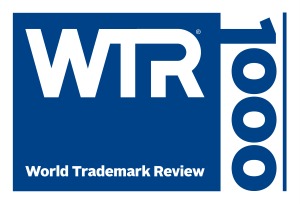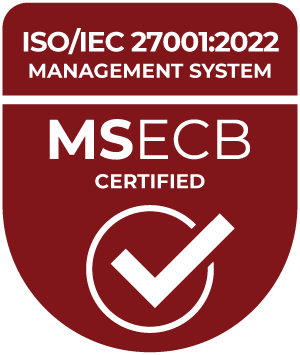It is a common misconception that employers automatically own the rights to intellectual property created by their employees. Specifically for patents, the default is that an invention and any patents covering it belong to the inventor, unless an agreement is established to the contrary. Nonetheless, the absence of an agreement does not necessarily preclude an employer from claiming a right to an employee’s invention. In such situations, an employer may be entitled to a “shop right”1 to use an invention while the employee retains ownership. As a result of this counterintuitive and complicated framework, without a specific written agreement to partition rights, it can be challenging to ascertain employer-employee rights. This is particularly true when multiple inventors are involved, as is often the case in the corporate context.
As a remedy, employers have often required, as a condition of employment, that employees enter into written agreements requiring that any inventions (and other intellectual property) created as part of their job will be assigned to the employer. However, for any contract to be enforceable – including an intellectual property assignment – there generally needs to be a mutuality of consideration. That is, each party needs to get something out of the deal.
Because of this mutuality requirement, companies often struggle with whether simply providing the employee with continued employment is sufficient to support an intellectual property assignment contract.
Case Background
The United States Court of Appeals for the Federal Circuit recently confronted this issue in Preston v. Marathon Oil Company, 684 F.3d 1276 (Fed. Cir. 2012). The court held that no additional consideration beyond the continuation of at-will employment is required to support an employee’s assignment of inventions (and other intellectual property) to the employer.
In the case, Pennaco Energy, a subsidiary of Marathon Oil Company (collectively “Marathon”), hired Yale Preston as a relief pumper in Marathon’s coal bed methane well operation. Preston was hired as an employee at-will, and, consequently, either he or Marathon could terminate the employment relationship at any time for any reason without cause or liability.
After he was hired, Preston signed an agreement that, among other things, assigned all intellectual property rights to Marathon for anything he created related to Marathon’s business or that used Marathon’s confidential information or equipment during his employment. There was no separate or additional consideration for this contract beyond Preston’s continued employment.
During his employment, Preston worked on a baffle plate system used for methane gas extraction. Preston drafted conceptual drawings, met with Marathon’s engineers, engaged a third party on Marathon’s behalf to manufacture the baffle plates, and managed the installation of the baffle plates in Marathon’s gas wells.
While Marathon still employed Preston, the company began preparing a patent application for the baffle plate system. After Preston’s employment ended, Preston filed his own patent application for the baffle plate system. Both patent applications ultimately matured into issued patents, but Preston refused to assign his patent to Marathon.
Marathon brought suit against Preston in Wyoming state court, alleging that Preston had breached his employee agreement by refusing to assign the patent.
Preston, in turn, filed a complaint in the U.S. District Court for the District of Wyoming2, seeking a declaration that he was the sole inventor of the patent in his name, and alleging other related (and later rejected) claims. Marathon counterclaimed in the federal suit, seeking its own declaration that Preston had agreed to assign his rights in the patent to Marathon.
The federal district court found that Preston was the sole inventor of his potential invention, but that Preston was required to assign his interest to Marathon pursuant to his employment agreement. The district court also found that Preston, in failing to assign the patent to Marathon, was in breach of that contract.
Preston appealed to the United States Court of Appeals for the Federal Circuit, with the key issue being whether, under Wyoming law, continuing the employment of an existing at-will employee constitutes adequate consideration to support an agreement containing an invention assignment provision. The Federal Circuit certified this question to the Wyoming Supreme Court, which answered in the affirmative – that continuation of at-will employment is sufficient consideration under Wyoming law3. Preston v. Marathon Oil Co., 277 P.3d 81, 88 (Wyo. 2012). As a result, the Federal Circuit found that the employment agreement at issue was enforceable.
In addition, under the language of Preston’s employment agreement, the Federal Circuit held that even assuming Preston had “conceived” of the invention prior to joining Marathon, he could not establish that he had made the invention in any tangible way – known as “reducing to practice” – before the employment, which the agreement required for an invention to be excluded from the ambit of the assignment. The appeals court, therefore, rejected Preston’s claim that his individual patent should be exempt from the assignment clause, and affirmed the lower court’s finding that Preston had “little more than a vague idea” for the ultimate patented invention prior to his employment.
Lesson for Employers
At first blush, the implication of the Preston holding is to provide a federal-level, unified resolution to the question of whether continued employment constitutes sufficient consideration for an assignment contract. However, because this decision was rendered under Wyoming state law, it may not be capable of being universally applied. Nonetheless, the Federal Circuit’s opinion certainly provides guidance to employers concerning how best to structure intellectual property assignment agreements to ensure that their rights are protected.
__________________________________________
1 The “shop right doctrine” holds that when an employee, during hours of employment, uses the employer’s materials and equipment to conceive and perfect an invention for which the employee obtains a patent, the employee must provide the employer with a non-exclusive right to practice the invention. See United States v. Dubilier Condenser Corp., 289 U.S. 178, 188, amended sub nom. United States v. Dubilier Condenser Corp., 289 U.S. 706 (1933).
2 The Wyoming state court action was then stayed pending the outcome of the federal case.
3 The Wyoming Supreme Court distinguished its previous ruling in Hopper v. All Pet Animal Clinic, Inc., 861 P.2d 531 (Wyo. 1993), which required separate consideration, other than continued at-will employment, for a non-compete agreement, noting “there is a fundamental difference between non-competition agreements and intellectual property assignment agreements,” and that the stability of the business community is served by not requiring additional consideration for intellectual property assignments. Preston, 277 P.3d at 87.















